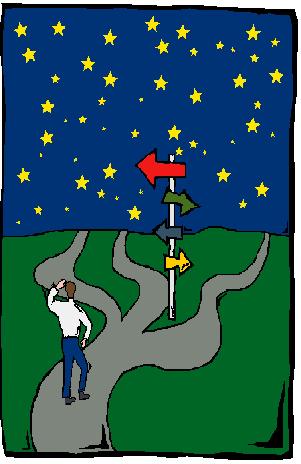阿巴马的当选为新的美国总统是否触动了你?是否让你觉得只要努力,一切都有可能?在一个在白人为主的,黑人长期备受歧视的美国,一个黑人当选了。这是否意味着种族关系将全面得到改观?
很幸运大选年我在美国,看到这个具有划时代意义的选举。我承认,我也被这里人们高涨的热情感动了。
---颇有感触的小编
Posted at 12:16 AM/ET, November 06, 2008
USA TODAY
How did America get to this point?
Some 220 years ago, it adopted a Constitution (宪法) that counted blacks as just three-fifths of a person. President Theodore Roosevelt was widely condemned (谴责) 113 years later for having a black man dine with him in the White House. And now, the country has voted, giving a black family a 4-year lease (租期) for that great edifice (大厦,建筑物) at 1600 Pennsylvania Ave (白宫所在地址).
How is it that only 43 years after Congress struggled to enact legislation giving federal protection to the voting rights of blacks that Barack Obama — a black man — could be elected president of this majority-white nation?
Pundits (提出意见者;批评家) and historians will, no doubt, dissect (详细分析) Obama's winning campaign strategy and Republican John McCain's failed candidacy in search of answers to the key questions, but they will likely be looking in the wrong places.
The answers lie within the discovery that voters made about the campaign of Sen. (senator参议员) Obama.
A yearning (向往)
To be sure, Obama ran a brilliant campaign. He was masterful (熟练的) in his use of new media — text messages, blogs and YouTube's free video-sharing — to raise a massive amount of money and bring millions of new voters into the political process. And his message of change — coming as it did from a 47-year-old first-term senator who is the son a black man and a white woman — trumped (胜过) the change message of McCain, who looked and sounded very much like the linear (线形的,此处指直接的) successor (继承者,接任者) to President Bush.
More than anything else, the thing that lifted (提高地位) Obama into the Oval Office (椭圆形办公室,美国总统办公室) was his ability to convince sizeable chunks (相当大的数量) of voters he could give them something they desperately (迫切地,拼命地) wanted — something they yearned for above all.
Whites who voted for Obama want their country back. They still recall Florida in 2000, when a botched (糟糕的;修修补补的) vote count put the outcome of the presidential election in the hands of a conservative U.S. Supreme Court (最高法院), which promptly (迅速地) gave Bush the keys to the White House.
Their country was taken from them by the deception (欺骗,诡计) of the neo-cons who took this nation to war in Iraq, by the overreach (手伸得太长;弄巧成拙) of the USA Patriot (爱国者) Act (法案), and by the greed (贪欲,贪婪) of the Wall Street robber barons (巨头,大王;大亨) whose actions gutted (毁坏内部;取出内脏) the stock portfolios (一组投资) and retirement accounts of millions of Americans — and threatened to topple (颠覆) the world's financial system.
The future now
Of course, blacks, too, were hurt by these things, but the long history of their disenfranchisement (剥夺权利) left them with a more deeply rooted need. They wanted a radical break from the past. They wanted, to paraphrase (变换措辞,解释) Yogi Berra, a future that "ain't what it used to be" — a future in which being judged by the content of their character, not the color of their skin, is more than an empty civil-rights catchphrase (标语;宣传语).
Obama's White House campaign gave the nation's blacks reason to believe that that future could be now. It gave them hope that Jim Crow Jr. — the kinder, gentler form of racism (种族歧视) that replaced Jim Crow after the civil rights-era victories — is in full retreat (全面撤退).
"If there is anyone out there who still doubts that America is a place where all things are possible; who still wonders if the dream of our Founders is alive in our time; who still questions the power of our democracy, tonight is your answer," the president-elect said in his victory speech Tuesday.
In creating a winning coalition (联盟), the blacks and whites who voted for Obama arrived at the same American crossroad (十字路口) from decidedly different directions. And when they got there, they embraced (乐意地或渴望地从事于) the vision of a man whose promise of change offered them that which McCain didn't — a nation that is far better than its past.
DeWayne Wickham writes on Tuesdays for USA TODAY.


